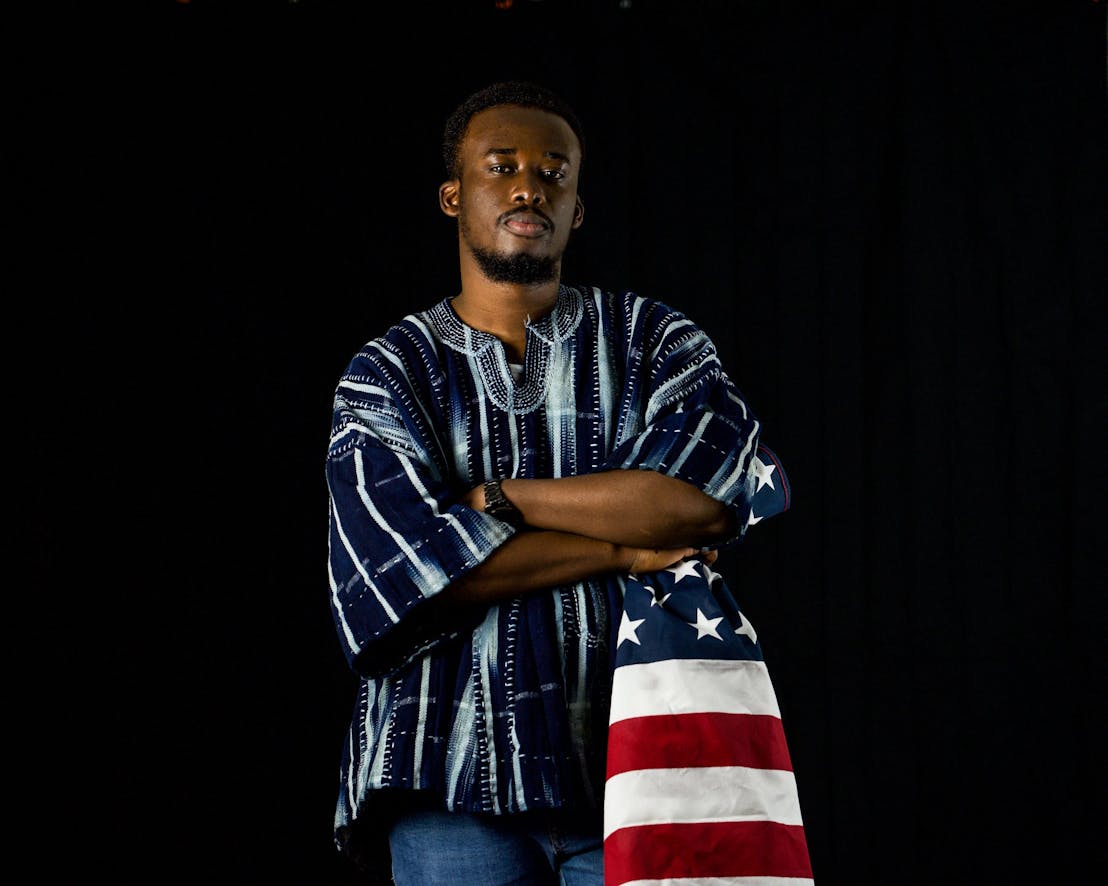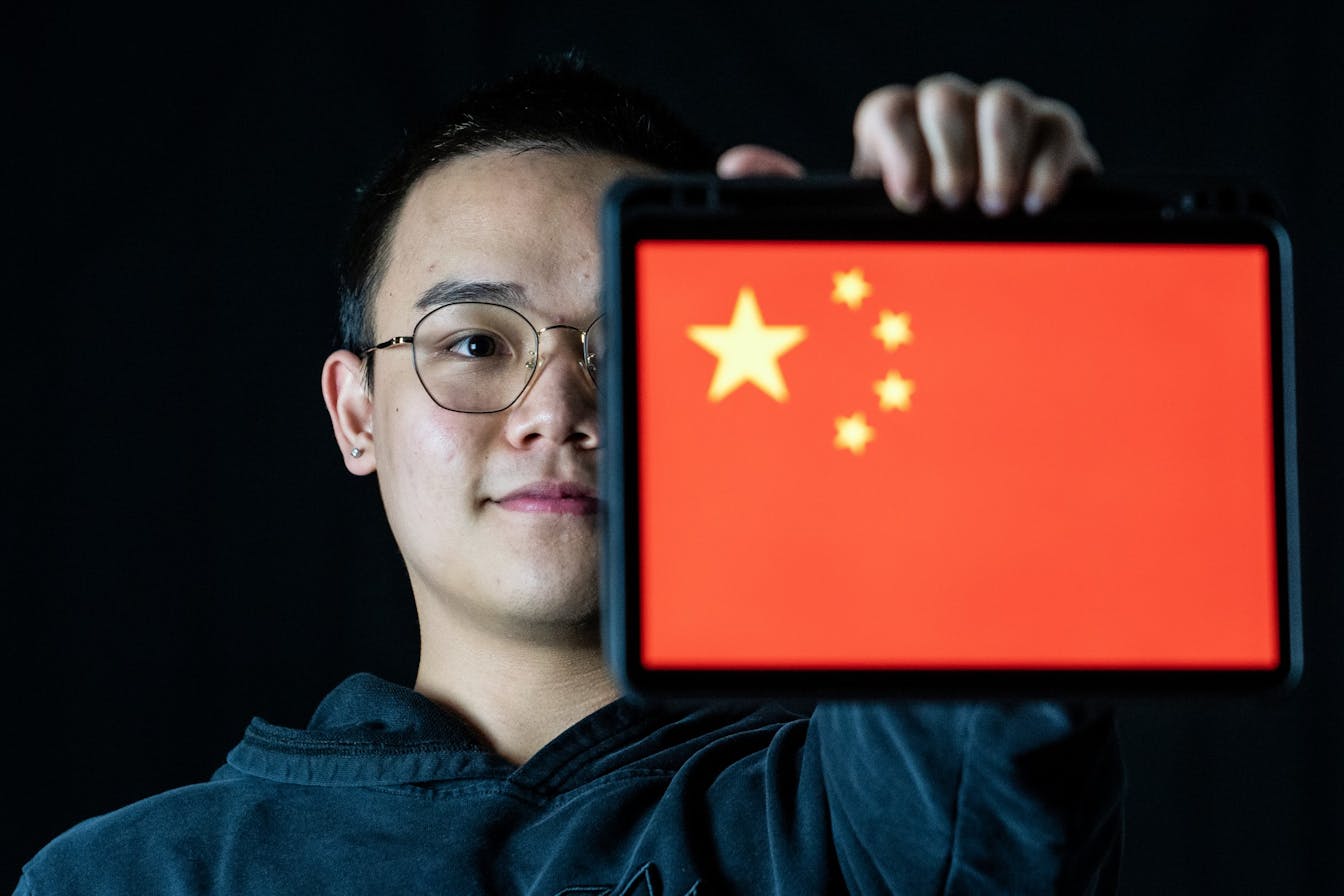Socially distant: International students say they feel frustrated, isolated this semester

Most Central Michigan University students are eagerly anticipating the Holiday Break that begins on Nov. 25. Not all students will have the option to return home after the semester ends, though.
There are about 400 international students from 55 countries enrolled at CMU this semester. Many international students are facing travel restrictions that will keep them in Mount Pleasant over the holidays. Some are also struggling financially.
Already feeling isolated and alone on a mostly empty campus, many international students are frustrated. They traveled to America to take advantage of a better educational experience than their own countries provide and to experience a new culture – what they got was virtual classes that make it difficult to connect with other students.
“Most of us aren’t used to online classes. It disconnects you from people," said Paul Sunday Ayetin, a graduate student from Nigeria. We can’t ask questions because of the language barrier, so most of us don’t speak up.”
If Ayetin was aware that his class format was more online than in-person, he would have not come to the United States. This semester has been a struggle for him. Not only does Ayetin feel he is not getting the value of what he originally paid for with online classes, he can't even consider traveling home due to his financial situation.
The thing he wants most next semester is to make more connections on campus. He wants a life outside of his virtual classroom.
“Where do I get friends? Where do I meet people? Everything is online," Ayetin said. "I really, really want friends.”
Seeking personal connection
Due to COVID-19 restrictions, programming and advising has been mostly online for international students. Because of that lack of personal connection, it's more important than ever that faculty and students help check in on international students to see how they are doing.
"We understand that not having those in-person events is really hard to develop that sense of community," said Jennifer Evaniuk, executive director of the Office of Global Engagement. "I think knowing that they have the support of the campus community is really vital right now."
Without many organized events that traditionally would allow them to meet other students, international students are struggling to not feel isolated. They are constantly in their homes and completing everything remotely due to COVID-19 restrictions.

For Theophilus Nkansah, a graduate student from Accra, Ghana, Fall 2020 has been a quiet, lonely semester. He lives in an apartment and he has no roommates. He does not have anyone to keep him company during a time where many people feel alone and disconnected from others on campus. He does keep in touch with his family in Ghana, especially his mother. Nkansah talks with her to show her that he is OK so she does not worry about his physical and mental health.
“Sometimes I get lonely because, where I come from, our culture is always having people around us," Nkansah said.

Shian Li holds his iPad with the Chinese flag on it Oct. 24 in Moore Hall.
Some students are seeking connection and comfort in other ways. Hainan Province, China junior Shian Li adopted a seven-month old kitten, Jacko, from the Humane Society of Midland County. Li was looking for a good listener. He bonded with the kitten, though he went there with the intention of adopting an older cat, after Jacko rubbed his head on Li's hand. This "friendly and sweet" cat will help comfort Li, especially through the long winter break.
Some students are still struggling to make any connections on campus. Since he arrived in Michigan this August, Ayetin has struggled. He wants to be cautious, and is social distancing to keep healthy, but by doing that he has become lonely, especially when everything he participates in is online.
“There is nowhere you can make friends," Ayetin said. "If you are not going out."
Struggling with financial hardships
People may think international students are well off financially, but many work on campus to help pay for their education. This year, due to campus-wide budget reductions student work hours are limited. Their status as international students only permits them to work on campus. That means many international students who rely on campus employment are being affected.

Sao Paulo, Brazil junior Isabela Soares is only working eight to ten hours a week. She could work a many as 20 hours a week, but students employment was reduced due to the pandemic. She is trying to figure out how to come up with more money in order to afford to pay for her tuition, rent and groceries next semester.
"It’s not like we are rich," Soares said. "My mom has worked really hard, and I had to work really hard, to pay for everything."
She will not be working for the next six and a half weeks of winter break because the office she works in will be closed. Her parents send her money to pay for expenses, but it is still not enough. The exchange rate is one U.S. dollar to 5.75 Brazil Reals. Soares said she is trying to find a short term job over holiday break or she will have to ask her parents for more money.
International students do not receive financial aid because of their status as non-U.S. citizens, making it more difficult for them to pay for their expenses. A credit hour for an undergraduate international student is $789 for under 56 credit hours and $815 for above; it's $850 per credit hour for international graduate students.
Most international students depend on campus jobs to help pay their bills. The Office of Global Engagement was able to help a few students identify emergency funding through two external emergency scholarships.
Ayetin has been financially stressed because of school and housing expenses. Because international students are not allowed to work off campus, they must take the hours the university gives them. They do not have any other choice.
“People need to be considerate of us," he said.
CMU made efforts toward helping international students at the beginning of the pandemic by making sure they had access to no cost, daily meals. According to campus policy, international students are only permitted to work on campus and their hours have decreased because of COVID-19.
For all the advantages of studying in America, there are some disadvantages. Most students can go home for family events. International students don't just miss their families, they also miss engagement parties, birthdays and weddings. Some international students have gone five months to three years without going home and seeing their families.
COVID-19 has made going home almost impossible. Prices for airline tickets have increased. In some countries, health restrictions that prohibit travel from America do not make returning home possible.
Li said the price of a one-way ticket to China has increased by more than $2,000. The process of quarantining after arriving in China is intensive. There is a mandatory 14-day quarantine for people arriving in China.
He will continue to stay in the U.S. until the pandemic is over. His student visa will be expiring therefore if he leaves, he will not be able to come back to America until the pandemic is over.
“I have prepared myself for staying in the United States for years," Li said. "I don’t know how long it is going to be. If necessary, if it is the best choice, I am going to stay here until everything is cooled down.”
Soares planned to go home to Brazil this summer but had to cancel her flight a week before her scheduled departure due to COVID-19. At one point, her home country was a hot spot for the pandemic. Going home would mean being unable to return to the U.S. Soares said she will attempt to return home in May.
“It is a sacrifice," Soares said, "leaving everybody in our home country to get a better education."






